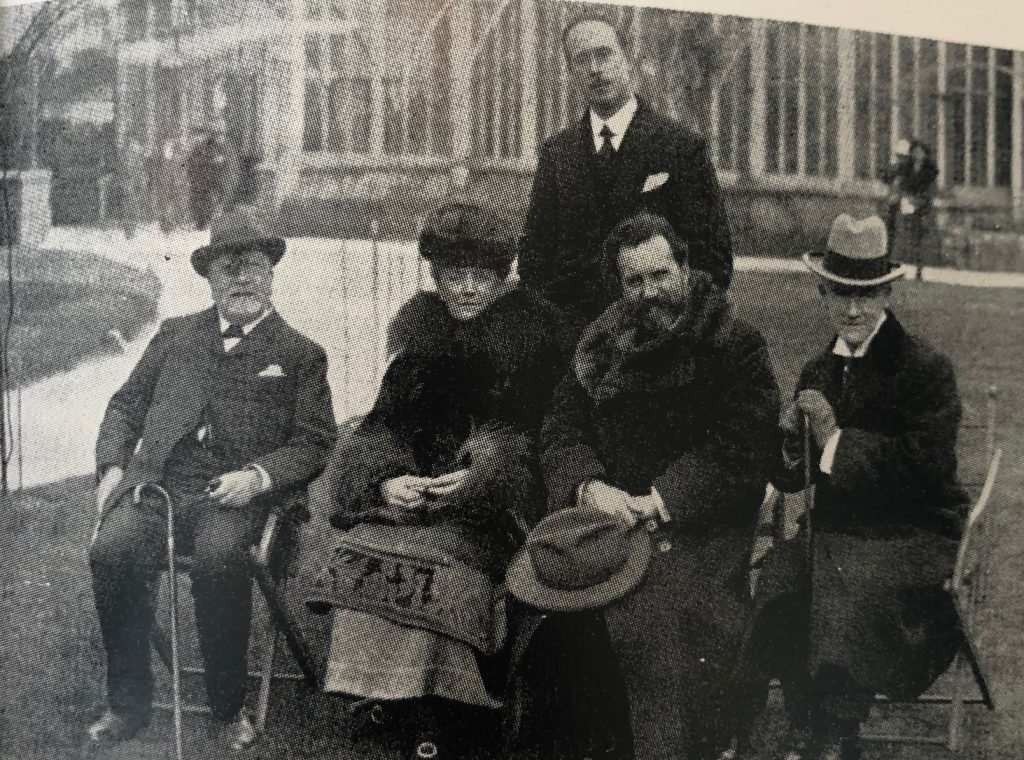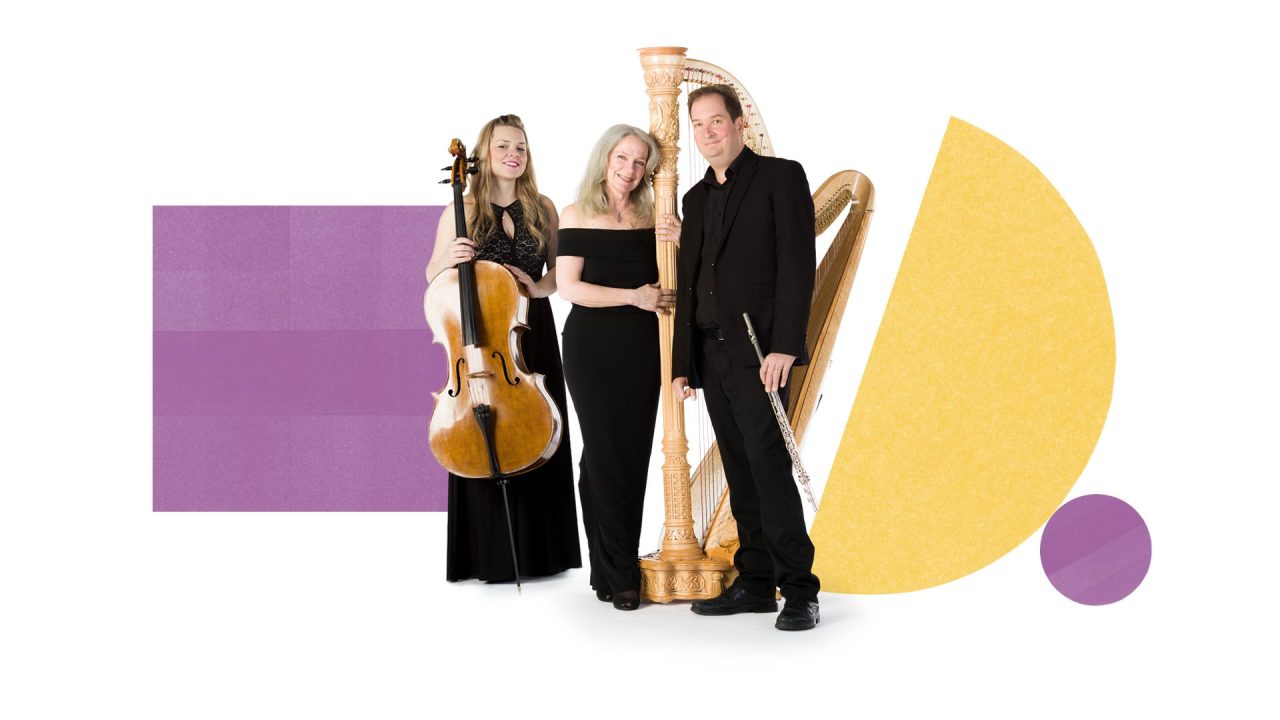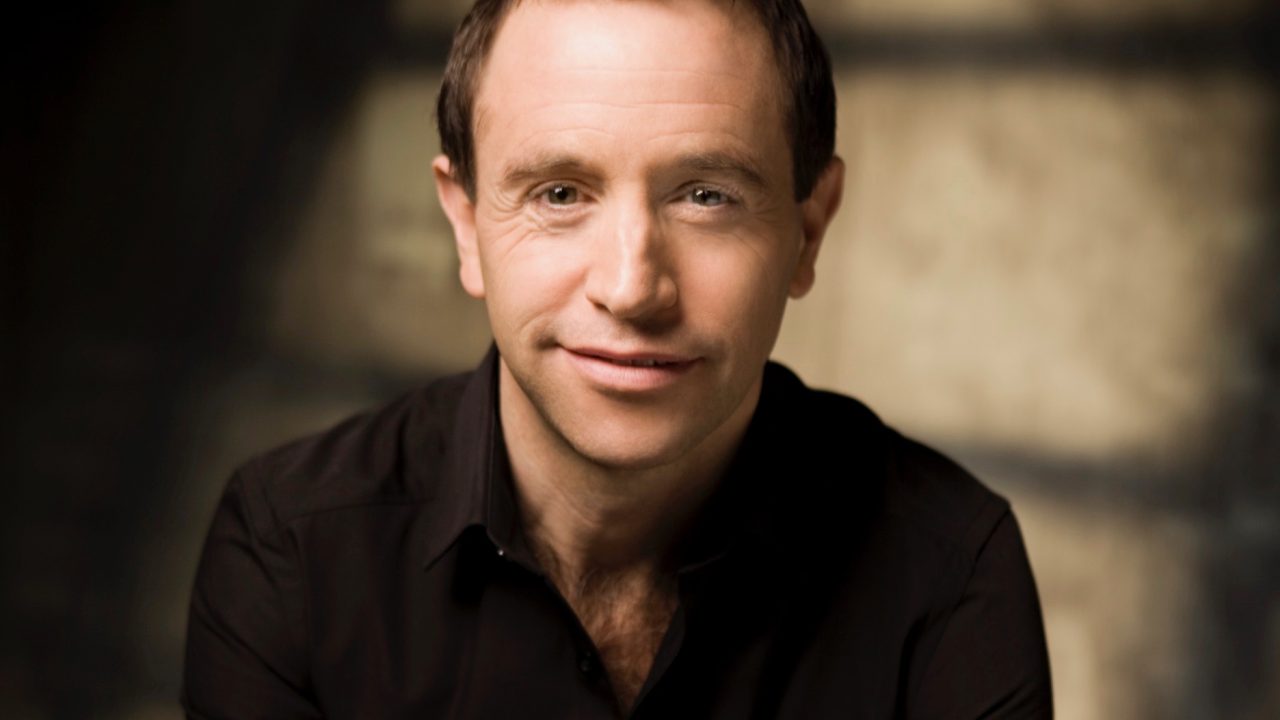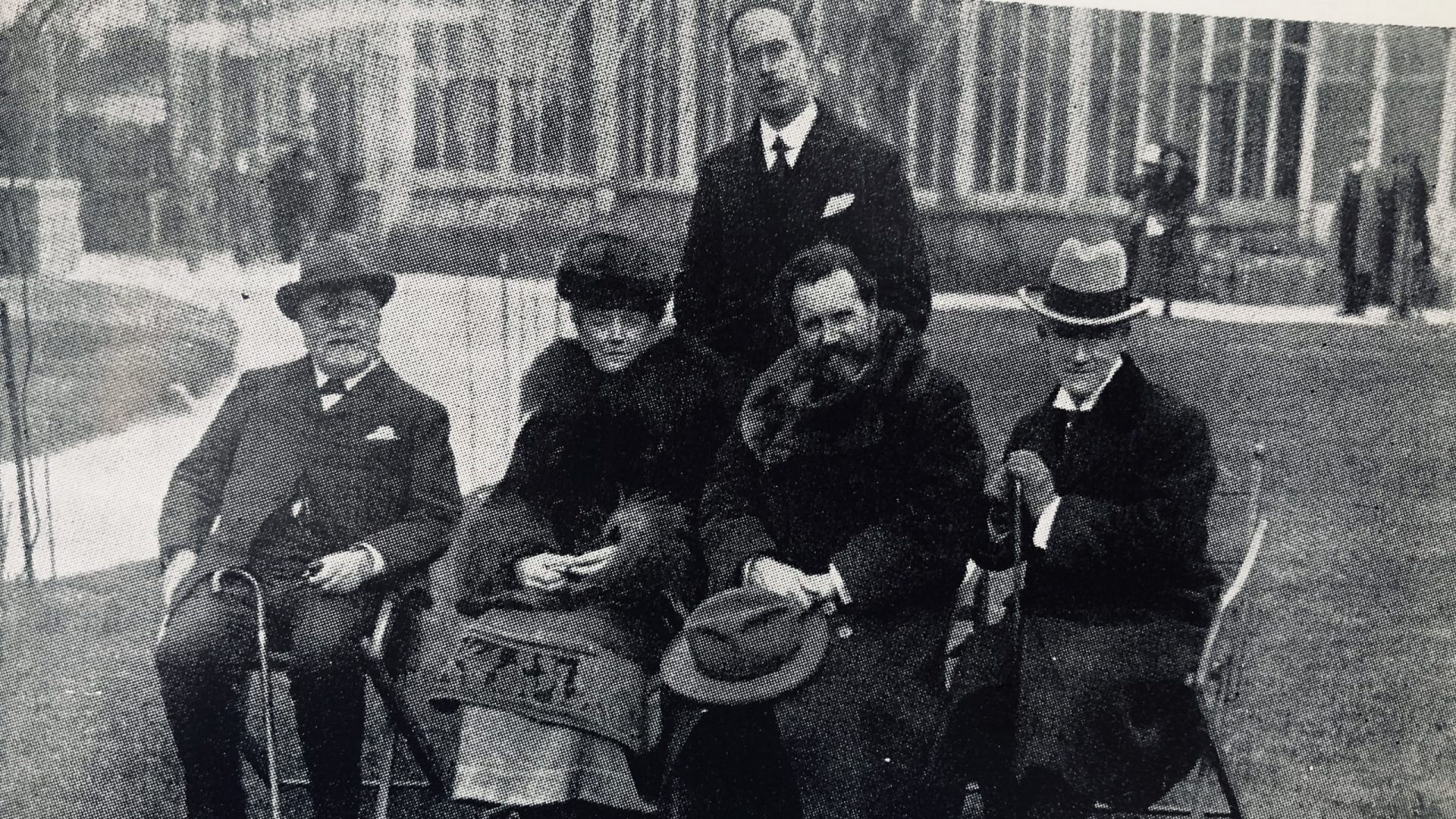Dame Ethel Smyth (1858-1944) was known as an incredible force, both musically and personally. Born in Kent, Smyth was one of the most successful composers of her time, yet pursuing a career in music was far from straightforward. Going against her father’s wishes, she studied at the Leipzig Conservatoire and went on to spend a decade on the continent, honing her craft and meeting some of the most prominent composers of the time, including Johannes Brahms, Antonin Dvořák and Clara Schumann. On her return to the UK she continued to work prolifically, her pieces being performed across Europe and America.
One of the key champions of Smyth’s work in the UK was the BSO’s founder, Dan Godfrey. It was here, in Bournemouth in 1914, that she conducted the overture to her famous opera The Wreckers. Over the years the two developed a close friendship, strengthened by the warm welcome she always received on the South Coast.
On learning in 1922 that the Orchestra was at risk due to funding difficulties, Smyth was determined to do all she could to help Godfrey. A key part of this was using her influence to win him a knighthood. On receiving her own honour, that same year, she had reportedly remarked to Godfrey “Never mind me! They ought to do something for you in recognition of all that you have done for British music”. Smyth drove a campaign to put pressure upon the then Prime Minister, David Lloyd George. She contacted musicians and those of influence, with names such as Edward Elgar, Henry Wood, Gustav Holst, and Frederick Delius joining the cause.

Sir Dan Godfrey stands behind his guests at Bournemouth’s Winter Gardens in 1922. Seated L-R: Sir Alexander Mackenzie, Dame Ethel Smyth, Sir Henry Wood, and Sir Edward German.
A force to be reckoned with, Smyth was also an important figure in the women’s suffrage movement. Along with 100 other women, she was arrested in March 1912 for throwing a brick through a window, consequently serving two months in prison. When paying her a visit, friend and conductor Sir Thomas Beecham found her directing her fellow suffragettes in a performance of her work The March of the Women!
Smyth must have been particularly proud when, in keeping with his trademark spirit of musical experimentation and freethinking, Godfrey presented a concert of music composed solely by women (including Smyth’s work) as part of Bournemouth’s 1927 Easter Festival. A bold move at a time when many were reluctant to include compositions by women in their concert programmes at all; this was likely to have been an unprecedented moment in British musical history and an insightful nod in the direction of change to come.
We are proud that the Orchestra continues as Dan Godfrey had intended, recognising talented musicians regardless of gender. The appointment of the brilliant Marin Alsop as our principal conductor in 2002 was a key moment in this history, and more recently Marta Gardolińska has made a splash as our Young Conductor in Association, recently being selected to be a Dudamel Fellow for the LA Philharmonic; whilst our current artist in residence for the 19/20 season, award-winning pianist Gabriela Montero, thrilled audiences on Bournemouth Pier when she arrived in the autumn. Later in 2020, our Royal Philharmonic Society Award-winning ensemble, BSO Resound, will give the premiere of a new work by composer Shirley J. Thompson. We’d like to think that Dame Ethel and Sir Dan would’ve approved.





